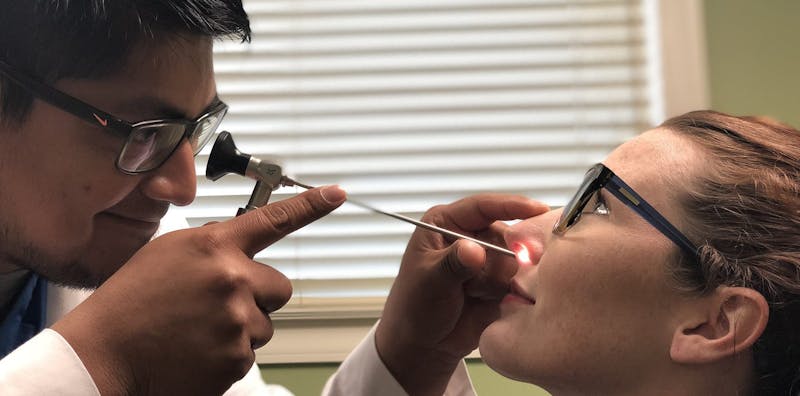
The American Academy of Otolaryngology -Head and Neck Surgery (AAO-HNS) created the World Sinus Health Awareness Day to give the millions of people who suffer with sinus problems access to trusted information about their symptoms. As well as, patient focused ways to improve their condition with specialized care.
As we enter the fall allergy season, it is important for patients to understand and recognize the difference between sinus and nasal symptoms when it comes to sinusitis, allergies, upper respiratory infection, the common cold, and COVID-19. Especially when every sniffle, cough, or tickle in the throat, still has us on edge.
Sinusitis
Sinusitis, which is a sinus infection, occurs when an environmental allergies, bacteria or viruses infect the sinuses. This produces an inflammatory response by the body, causing blood carrying inflammatory cells rush to the nose and face to fight the infection.
This results in the sinus tissue lining to swell, mucus and pus fills the sinus cavities and nose, and the cavities that drain the sinuses are blocked. It also causes pain and pressure in the face, eyes, and head. Sinus infections can affect the quality of life and even disabling in many respects.
Allergies
As the leaves turn golden and fall, as the air turns crisp and cool, new triggers can cause allergy symptoms to appear. When substances like pollen get into your nose and down your throat they can cause a chain reaction in your body. If your immune system mistakenly identifies them as foreign invaders and sends out antibodies to combat them, that releases releases histamines, which causes the runny nose, sore throat, watery eye symptoms we’re all familiar with.
Coronavirus
The CDC reports a wide variety of symptoms for COVID-19, ranging from mild to severe. Symptoms may appear 2 -14 days after exposure to the virus. The symptoms include: Fever or chills, cough, soreness of breath or difficulty breathing, fatigue, headache, muscle and body aches, soar throat, congestion or runny nose, and nausea.
Tension Headache
With everything going on, tension headaches are pretty common. They are caused by muscle tightness in the head and neck. This tightness can be a result of stress, anxiety, or injury and present as a dull, all-over type of pain that localizes around the temples, scalp, neck, and shoulders.

